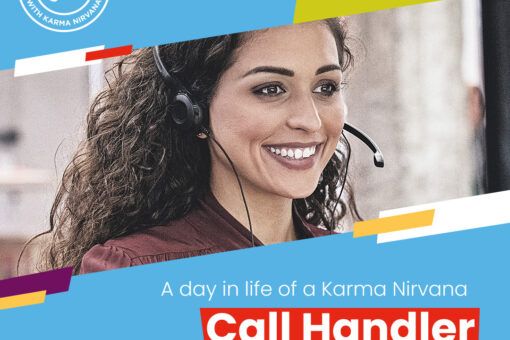
As a call handler at Karma Nirvana, I can never predict what calls I might receive that day. We often get calls where someone may still be living in an abusive or dangerous situation. Many callers are truly scared or traumatised by their experiences to speak about it. We have to build trust on a call for some to share details of their life. As call handlers, we’re there to provide a listening ear and to be emotionally supportive.
We take calls where someone may be sharing things they’ve never said to anyone else. Calls where someone feels trapped and as though there’s no escape. I hope that by the end of the call they recognise there are choices. Often, victims of honour-based abuse have minimal options and it’s good to be part of a process where survivors gain their autonomy. Above anything else, the best thing we do is to actually care. That care is in every call.
I often get many calls in a day from Police officers, Social workers, Teachers, Nurses etc. Professionals who want to ensure they haven’t missed anything from an honour-based abuse perspective. We often discuss not mediating with family, safety planning and safe accommodation options. Often, trying to explain the freedoms most people take for granted, things like going out with friends, having a relationship with someone of our own choosing or even being able to dress how we want to, these freedoms are often entirely forbidden.
Helpline wise, many professionals may deem much of this as what families do in culture. My job is to enable the professional to identify the abuse and to show why culture doesn’t make it right to control someone. It’s often as simple as pointing out if something would be abuse for someone from one ethnic background, it is still abuse, regardless of ethnicity. I always say abuse is always abuse, and I guess it’s an awareness of not confusing culture with abuse. Most cultural aspects of any background are positive; it is when we confuse culture with control that leads to harm or the lack of freedom we have a problem with. These are just some of the discussions we have with professionals on the helpline.
We often mention the Karma Nirvana risk assessment. Many police forces use this, enabling improved knowledge on honour-based abuse, leading to better safety planning. We also often direct professionals to the multiagency statutory guidelines on forced marriage for a best practice approach when dealing with such situations. It amazes me how many professionals have not heard of these guidelines and hope a better understanding of honour based abuse will enable better recognition of where and when it occurs.
We listen to a huge variety of the most horrific accounts of abuse a person can give. This is why my job can feel extremely difficult, tiresome and draining but also inspiring, rewarding and compelling. I feel like working for Karma Nirvana is much more than just a job. I’d be lying if I didn’t say I do love my role. The work we do is hugely important and can and does lead to lives being saved and lives being lived.
Angela x
